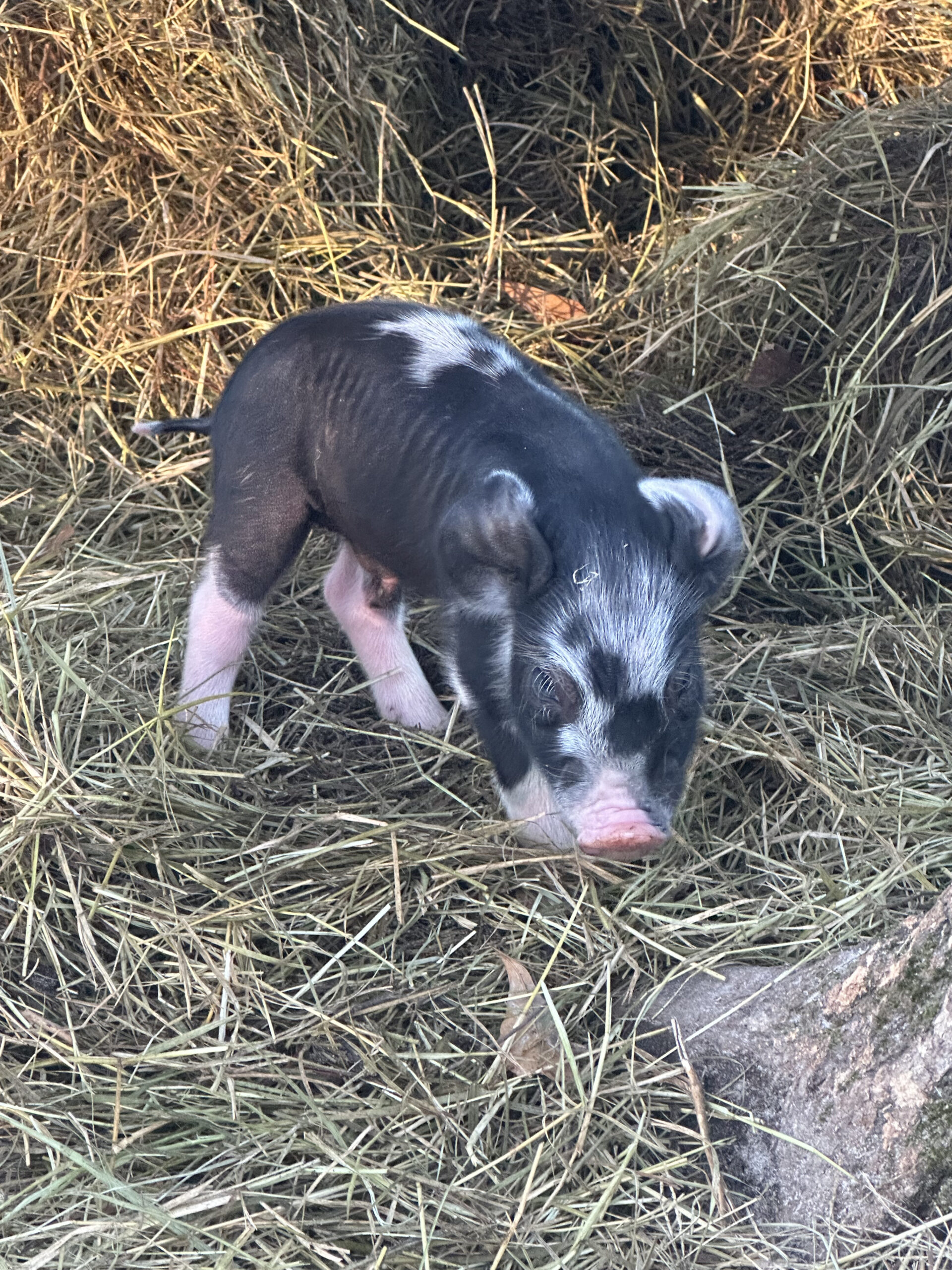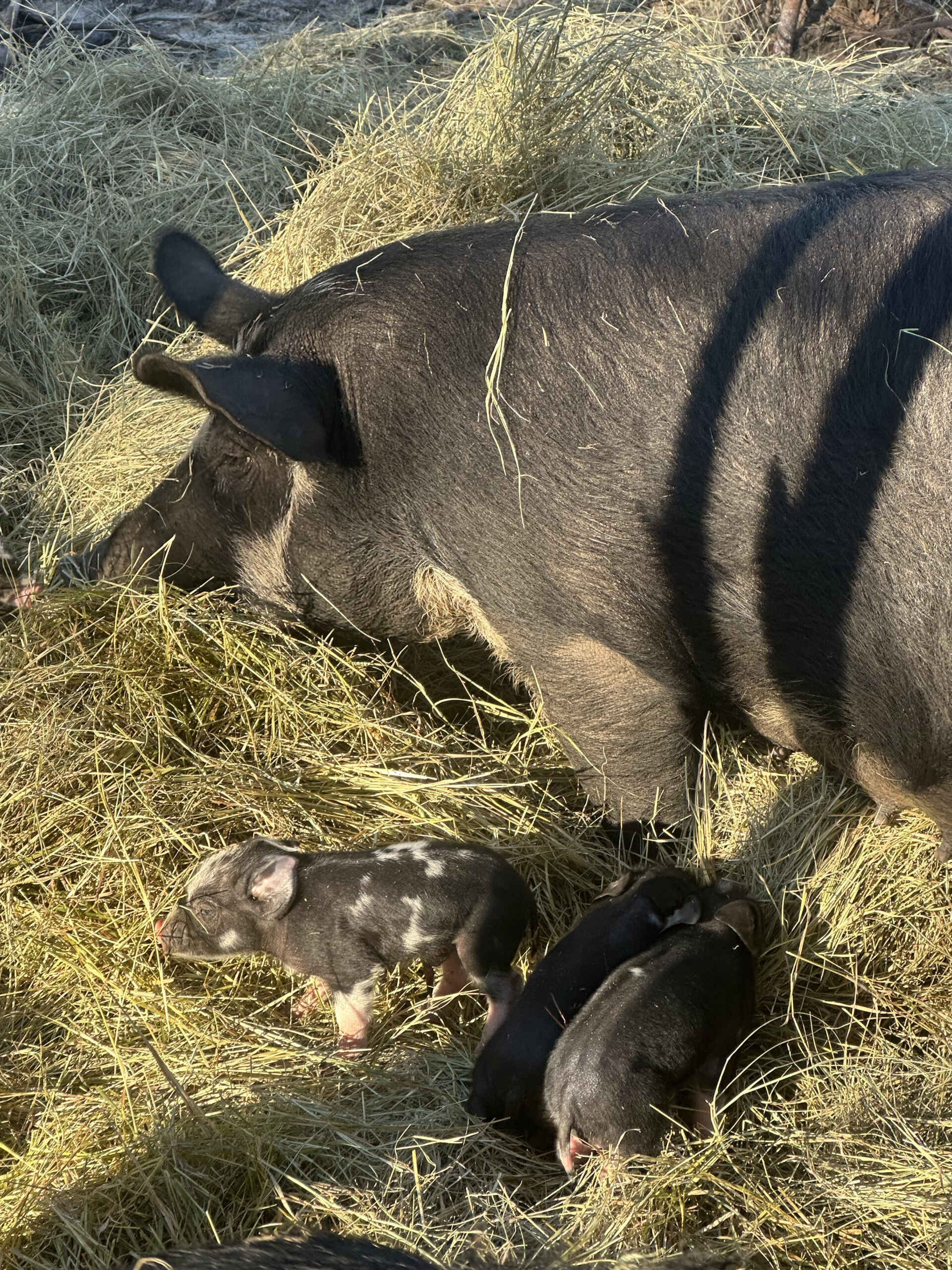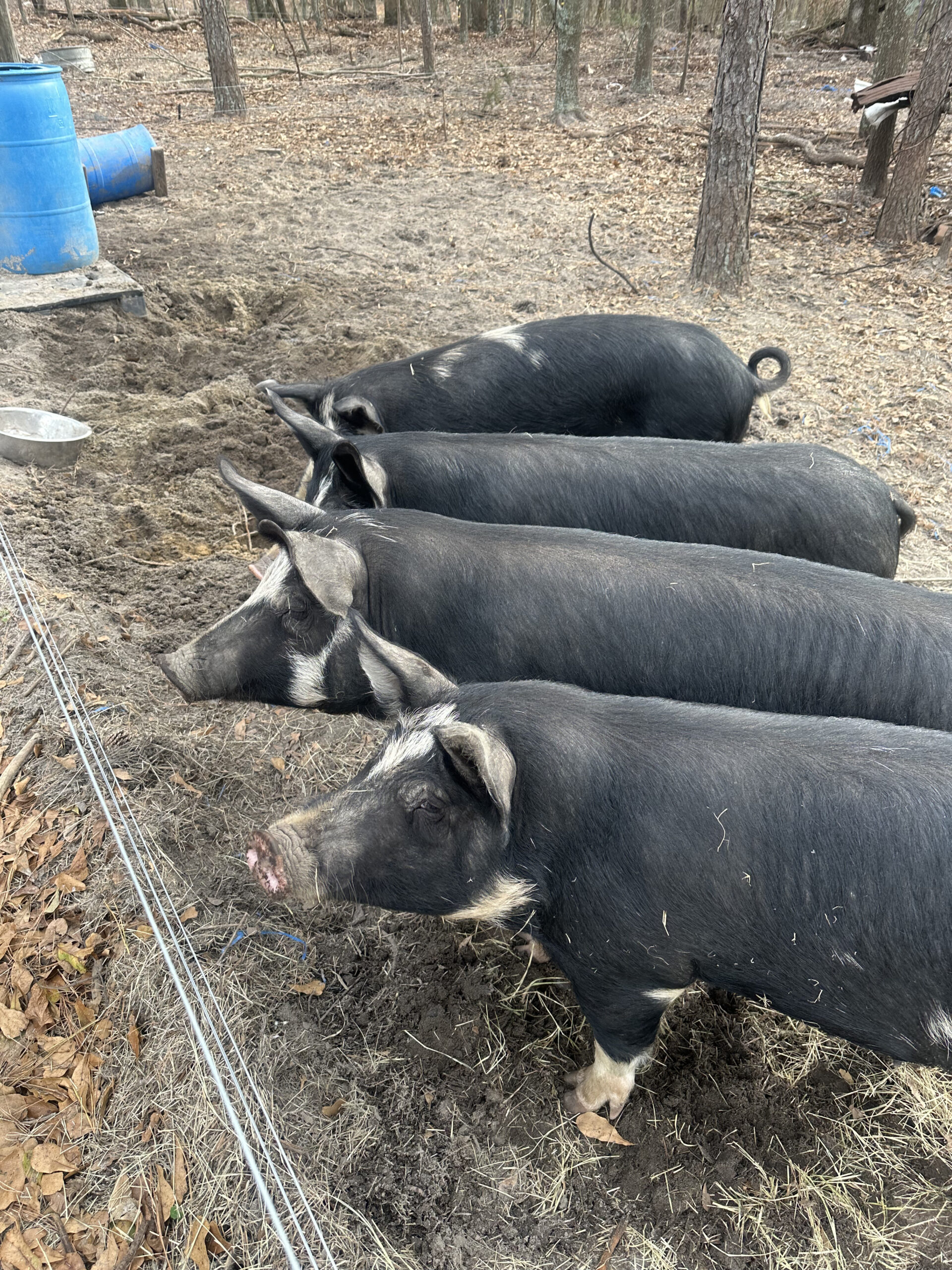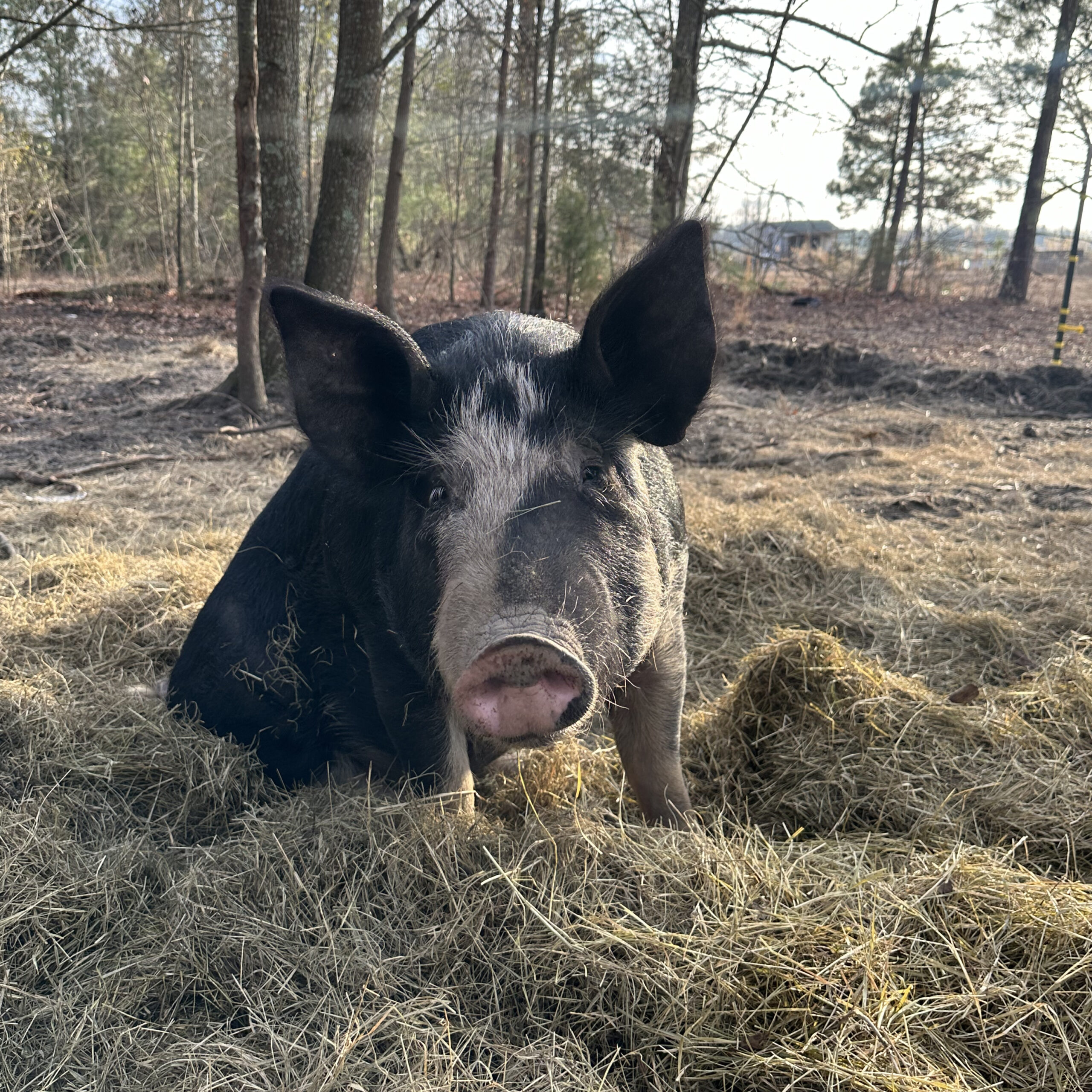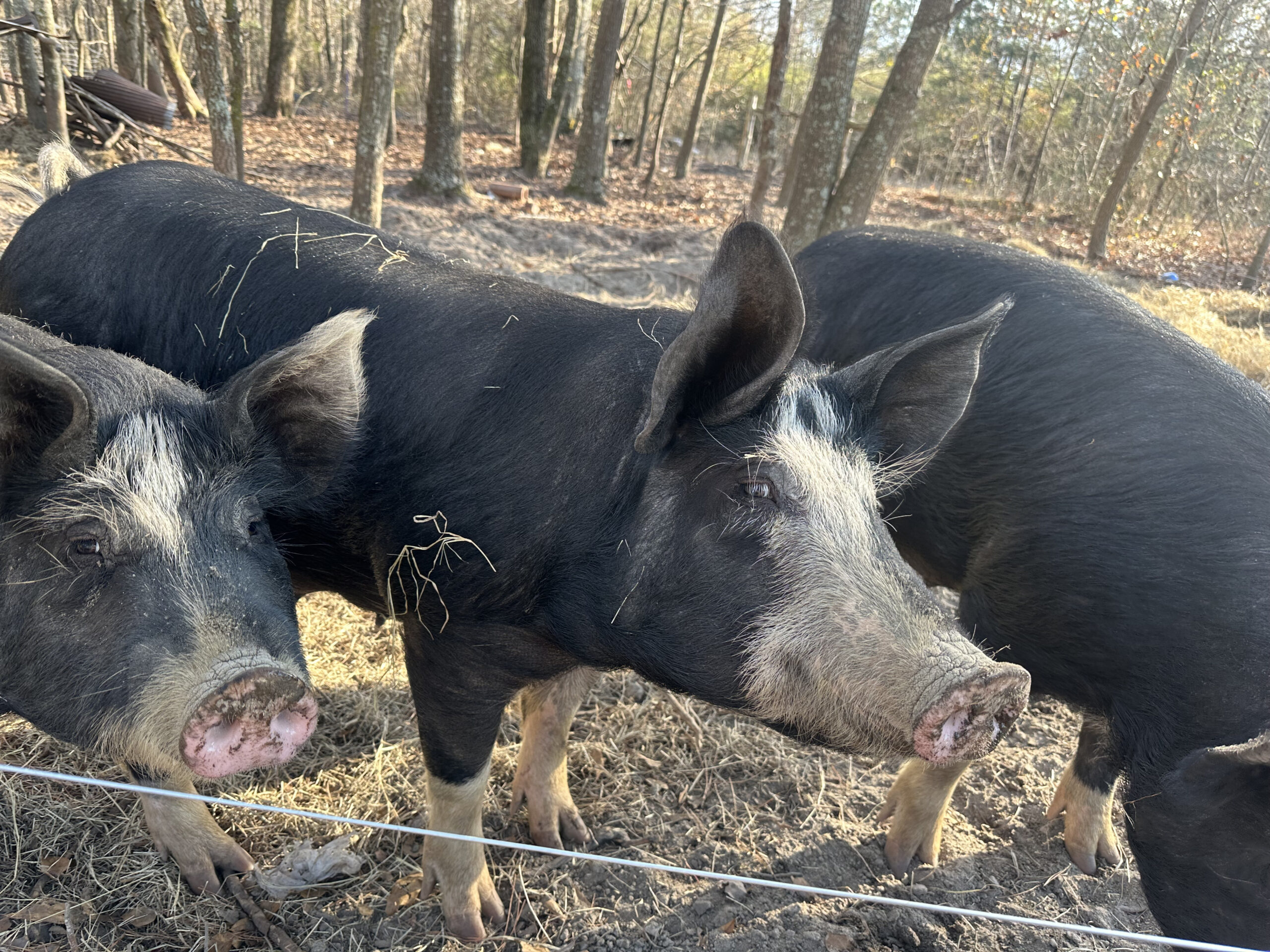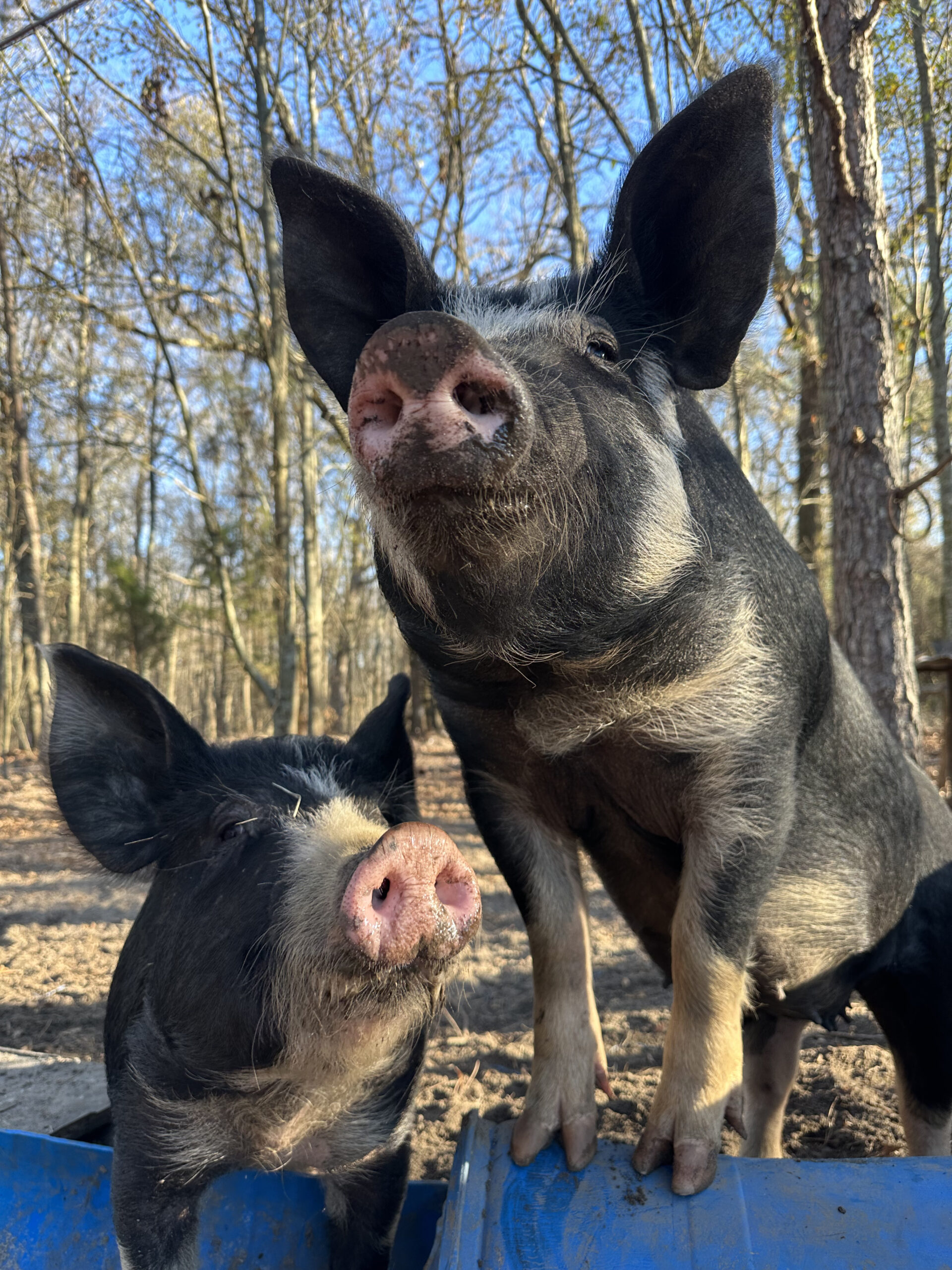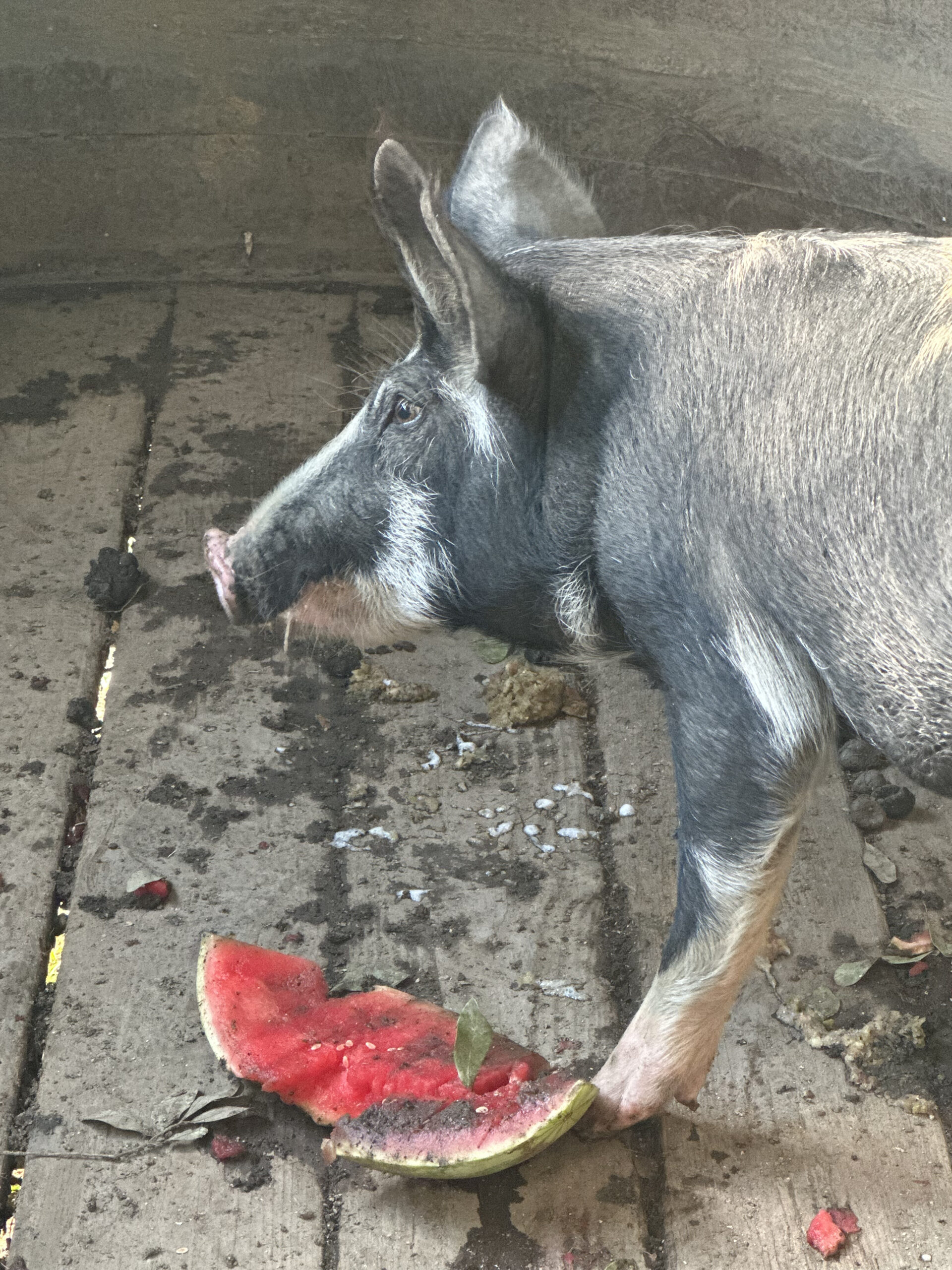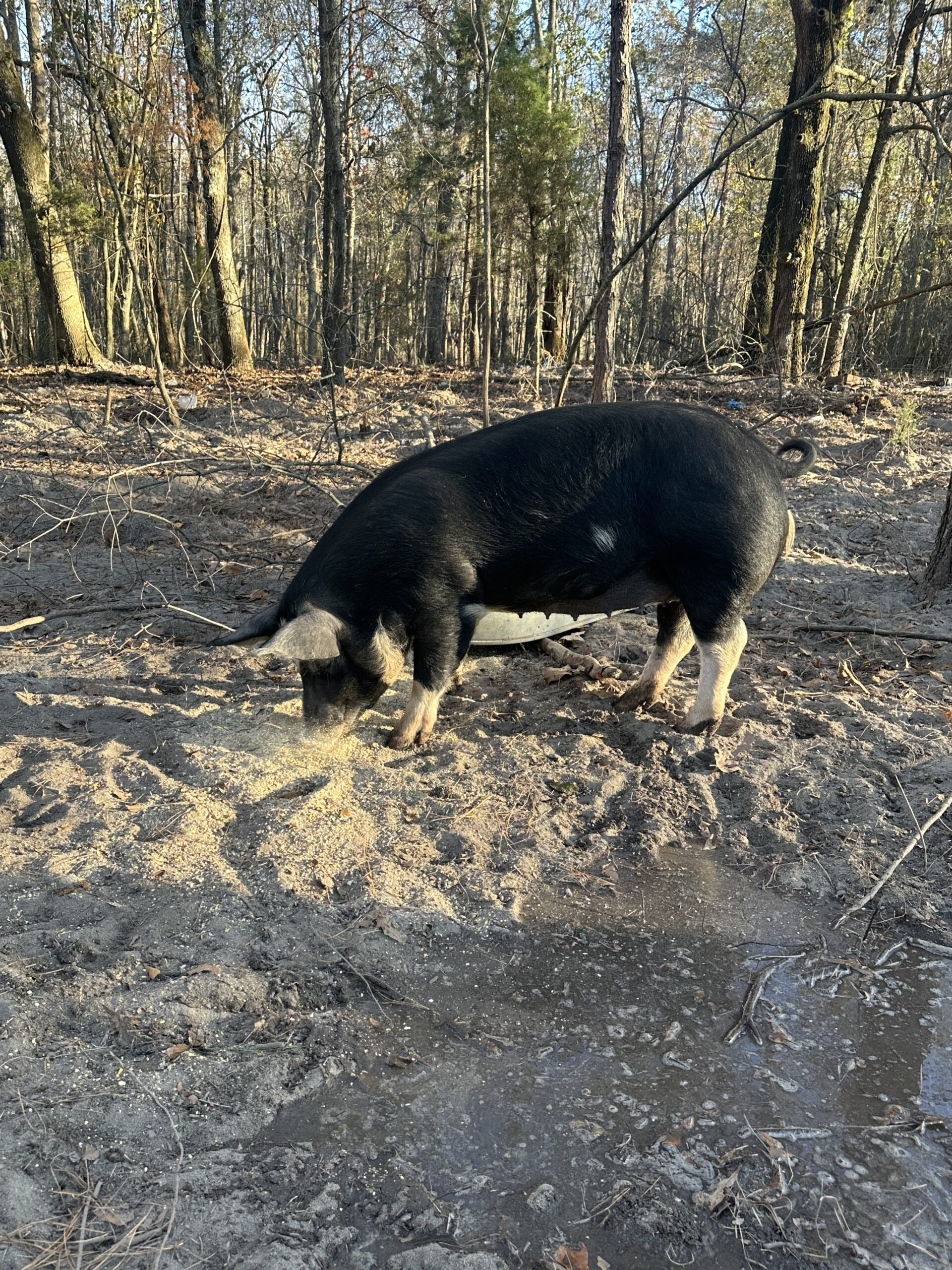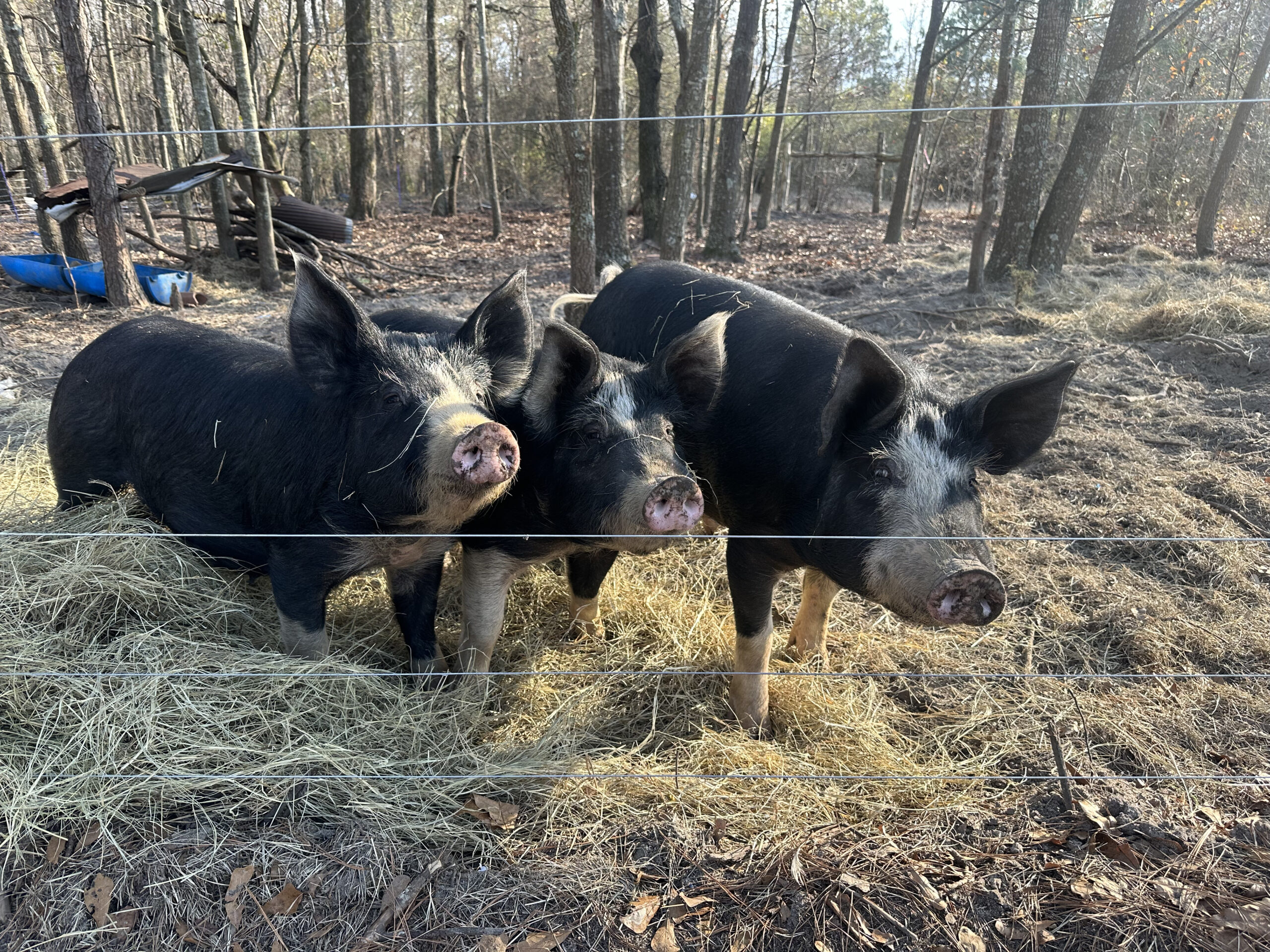
Our Pigs
Berkshire Fun Facts:
- Origin: Berkshire pigs originated in England, specifically from Berkshire County, and were brought to the United States in the 19th century.
- Distinctive Appearance: They have a striking black coat with white points on their snout, feet, and tail, making them easily recognizable.
- Heritage Breed: Berkshire pigs are considered a heritage breed, reflecting their historical significance and traditional genetic characteristics.
- Marbling: Known for exceptional marbling in their meat, Berkshire pork is prized for its enhanced flavor, tenderness, and juiciness.
- Temperament: Berkshire pigs are known for their docile and friendly nature, making them easier to handle and manage.
- Adaptability: These pigs are adaptable to various environments and management practices, making them a versatile choice for farmers.
- Efficient Feed Conversion: Berkshire pigs are efficient in converting feed into muscle mass, contributing to cost-effectiveness in pork production.
- Conservation Role: Choosing Berkshire pigs supports the conservation of heritage breeds, contributing to the preservation of genetic diversity in swine populations

